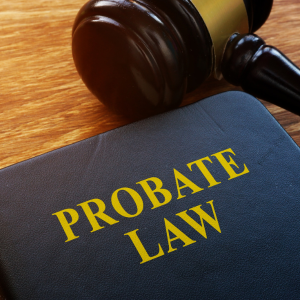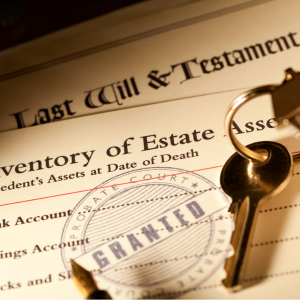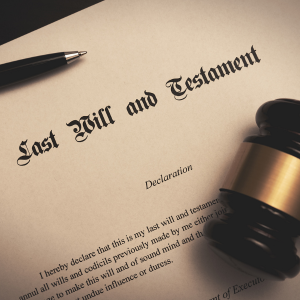
Understanding The Probate Process In Tennessee: A Guide For Selling A House
If you are a Tennessee real estate seller trying to sell a house through probate, you must know how the probate process works. Probate is the legal process for giving away someone’s property and assets after death.
In Tennessee, this process can take anywhere from six months to a year, depending on the complexity of the estate. At this point, the court will choose an executor or administrator to manage the dead person’s business and oversee the sale of their property.
Whether you need to move quickly for a new job or want to sell a probate property fast in Knoxville, we’re here to help. Wondering, ‘Can an executor change the Will?‘ While they manage the estate, they usually can’t alter its terms. Southern Sky Home Buyers can offer a quick, stress-free sale
Navigating The Legalities Of Selling A Probate House In Tennessee

Tennessee law makes selling a probate house more difficult than it needs to be, making the process stressful for people who want to sell a house. State laws say that a probate house has to go through a process supervised by the court to change ownership from the person who died to their heirs or beneficiaries.
You must get the court’s permission, file the necessary paperwork, and follow strict rules and deadlines to do this. There may also be legal requirements, like appraisals and telling people who might be interested.
These legal issues can be challenging to understand, so sellers need help from a real estate agent or lawyer who knows Tennessee’s probate laws inside and out.
The Importance Of Hiring An Experienced Probate Real Estate Agent In Tennessee
Selling a probate house in Tennessee can be challenging and overwhelming for real estate sellers. Hiring an experienced probate real estate agent who understands Tennessee’s specific laws and regulations is critical.
An experienced agent can handle the unique challenges of selling probate property, including dealing with multiple heirs and resolving legal issues. They can also offer valuable advice on correct pricing and effectively marketing the property to potential buyers.
Hiring an experienced probate real estate agent in Tennessee can help sellers sell their probate houses smoothly and successfully.
How To Determine The Value Of A Probate House In Tennessee

Determining the value of a probate house in Tennessee is crucial when selling it. This can be a complicated process because many factors influence its value.
Property location is vital in determining price, as desirable areas may cost more. The house’s condition, including any necessary repairs or updates, can significantly impact its value.
Other factors to consider include comparable sales and current market trends. By carefully weighing these factors, sellers can arrive at an accurate and competitive price for their Tennessee probate house.
Strategies For Marketing And Advertising A Probate House For Sale In Tennessee
Selling a probate house in Tennessee requires effective marketing and advertising. The sale’s success is heavily dependent on attracting potential buyers and highlighting the property’s unique features.
To effectively market a probate house, consider online listings, social media platforms, and local advertisements. Furthermore, highlighting any renovations or upgrades made to the home can help attract potential buyers.
Working with a real estate agent with experience selling probate properties can help promote them effectively in the local market. Sellers implementing these marketing strategies have a better chance of finding a suitable buyer for their probate house in Tennessee.
Tips For Staging And Preparing A Probate House For Showings In Tennessee

Preparing and staging a Tennessee probate house for showings is important to attract buyers. Here are some tips people selling their homes can use to get the most out of the process.
First, getting rid of clutter and personal items from the house can help potential buyers picture their own things living there. The property may also be worth more after a deep cleaning and any repairs or updates that are needed.
It’s also important to keep the outside of the house and the landscaping in good shape to improve curb appeal. Finally, if you hire a professional staging company, they can bring in furniture and decorations that will make the house look its best and make it feel welcoming for showings.
If real estate sellers in Tennessee follow these tips, they can stage and prepare their probate house for showings.
Negotiating Offers On A Probate House: What To Know As A Seller In Tennessee
If you are a real estate seller in Tennessee who is in the process of selling a probate house, it is essential to understand the importance of negotiating offers.
The seller of a probate house must comprehend the distinctive factors involved during negotiations, including the property’s fair market value and the potential for court involvement.
As a seller, it is also crucial to comprehensively comprehend your rights and responsibilities in this scenario.
Being informed about these factors can enable you to negotiate offers and potentially achieve a mutually beneficial agreement confidently.
Closing The Deal: Steps To Take When Selling A Probate House In Tennessee

Closing the deal is the last thing that needs to be done to sell a probate house in Tennessee. This means completing all the paperwork and giving the buyer ownership of the property.
Sellers need to do a few important things to ensure a smooth closing. First, they need to get an appraisal of the property to determine its market value.
Then, they must get all the necessary papers, like the owner’s death certificate and letters of testamentary or administration. Next, they should talk to their real estate agent about any repairs or credits the buyer wants.
Once everyone agrees on the terms and price, a contract can be written and signed. Finally, on the closing day, everyone will get together to sign any last papers and move the money.
People who want to sell their Tennessee probate house can do so by following these steps.
Common Challenges And Pitfalls When Selling A Probate House In Tennessee
Selling a probate house in Tennessee can be complex and overwhelming for real estate sellers. Although it may appear a simple transaction, several common challenges and pitfalls may arise.
One of the primary obstacles is the management of multiple heirs, each of whom has separate expectations and opinions regarding the property’s sale. This can result in delays and conflicts during the sales process.
Another potential obstacle is the complexity of the legal requirements and paperwork associated with probate sales, which can perplex individuals who lack prior experience. Furthermore, it may be challenging to identify prospective buyers interested in purchasing a probate house, as some may be hesitant due to misconceptions or apprehensions regarding the property’s condition.
Sellers must be cognizant of these challenges and pitfalls to successfully navigate the process of selling a probate house in Tennessee.
Pros And Cons Of Selling A Probate House As-is Vs. Making Repairs In Tennessee

When selling a Tennessee probate house, one of the most important choices the seller has to make is whether to sell the house as-is or spend money fixing it up. There are good and bad things about each choice.
When someone sells a probate house “as is,” they don’t have to make any repairs or updates, which can save them time and money. But this could mean a lower sale price and less interest from buyers who would rather have a home ready to move into.
Repairing the house, on the other hand, can bring in more buyers and possibly raise the sale price, but it takes time and money. Also, people selling an inherited house as-is should check to see if there are any legal requirements for telling buyers about any problems with the property. If they don’t, it could cause problems with the law in the future.
Finally, sellers should carefully consider their choices and talk to a real estate agent before choosing the best course of action for their unique situation.
Tax Implications Of Selling A Probate House In Tennessee: What You Need To Know
Potential tax implications are among the numerous critical factors to consider when selling a probate house in Tennessee. Real estate sellers must comprehend these implications.
Probate houses in Tennessee are subject to federal and state taxes, including capital gains and inheritance taxes. It is crucial to seek the advice of a tax professional or attorney regarding the potential implications of these taxes on your particular circumstances.
Furthermore, specific exemptions or deductions can be utilized to alleviate the tax burden associated with the sale of a probate house. Being cognizant of these potential tax implications can facilitate the successful sale of a probate house in Tennessee.
Working With Heirs And Beneficiaries When Selling A Probate House In Tennessee

Working with the property’s heirs and beneficiaries is a critical factor to consider when selling a probate house in Tennessee. These individuals may be involved in decision-making and have emotional attachments to the house.
Throughout the selling process, real estate sellers must effectively communicate with all parties involved and keep them informed. This can help prevent potential conflicts or disagreements and guarantee a seamless transaction.
Furthermore, understanding the rights and responsibilities of heirs and beneficiaries in Tennessee can assist sellers in making decisions consistent with state laws and regulations. By collaborating closely with heirs and beneficiaries, real estate sellers can successfully navigate the process of selling a probate house in Tennessee.
How To Avoid Paying Capital Gains Tax On Inherited Property Near Tennessee?
If you recently got an inherited house in Tennessee, you may wonder how to sell it without paying capital gains tax. There are many ways for real estate sellers to get through this process and pay the most minor taxes possible.
One option is to use the step-up in basis rule, which lets the property’s value be reevaluated when inherited. This could lower the taxable gain. You could also sell the property through a trust or an installment sale, which can help with your taxes.
Working with an experienced real estate agent who specializes in probate sales can also help you make sure you know about all the tax breaks and exemptions you can get. Awareness of and using these strategies will help you sell a probate house in Tennessee while paying as little capital gains tax as possible.
How Long Does Property Stay In Probate In Tennessee?

It can be difficult to sell a house in probate in Tennessee. One question that comes up often is how long the property will stay in probate. This question has more than one answer, depending on the estate size, any disagreements between beneficiaries, and whether or not a valid will was left behind.
In Tennessee, the probate process can take anywhere from six months to two years to complete. However, there are things that can be done to speed up the process and maybe even cut down on the time it takes to sell a probate house.
Real estate sellers should seek help from professionals who know Tennessee’s probate laws to ensure their property sells quickly and easily.
How Long Do You Have To Transfer Property After Death In Tennessee?
It can be hard to handle a loved one’s land and property after they die. When the person who died has certain legal deadlines for giving away property that you should know about if you want to sell a Tennessee probate house.
The process usually takes six months to a year in Tennessee, but it can take longer or shorter depending on the complexity of the estate. It starts when a petition for probate is sent in and ends when the assets are given to the people who are supposed to receive them.
Right now, having an experienced real estate agent with you is very important. They can help you sell a house that has been put up for probate and ensure you meet all the deadlines.
Can You Live In A House During Probate In Tennessee?
One important question you may have as a Tennessee real estate seller trying to figure out how to sell a probate house is whether you can live in the house during probate. There isn’t a simple answer because it depends on many things. In Tennessee, probate usually takes six months. During that time, the estate executor has to pay off any debts and give the assets to the beneficiaries.
If there is no dispute among heirs and the house does not need to be sold for financial reasons, living in the house during probate may be possible. On the other hand, if there are disagreements or money problems, the house might need to be sold immediately.
Talking to a real estate lawyer is a good idea if you want to know your options and get through this complicated process smoothly.
This applies to Tennessee, including cities like Nashville, Memphis, Johnson City, Clarksville, and more. If you need extra help, feel free to call us at (865) 249-0226 or visit our website at Southern Sky Home Buyers for more info.
More Resources For Home Sellers In Tennessee



